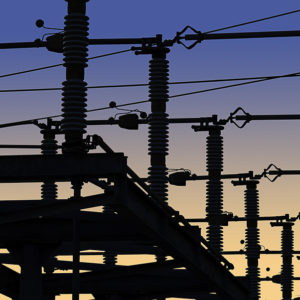The Biden administration opened up a new front in the oil and gas wars earlier this month by advancing a rule through the U.S. Fish and Wildlife Service to put the Dunes Sagebrush Lizard on the Endangered Species List.
The lizard’s habitat runs through the Permian Basin, where nearly 40 percent of oil and 15 percent of natural gas is produced in the U.S.
The action joins a long list of executive orders and proposed agency rules by the administration that critics say are designed to kill the fossil fuel industry. President Joe Biden has made no secret of his goal to push the country to alternative energy sources in pursuit of what one expert calls “overly ambitious climate targets.”
“The problem is we don’t have the infrastructure in place both in terms of the generation and transmission of electricity,” said Marc Scribner, senior transportation policy analyst at the Reason Foundation.
Even as the administration heavily subsidizes electric vehicles, Scribner pointed out the charging infrastructure remains sketchy. He said that most people can upgrade their home’s electrical panel, but that’s another added cost.
At the same time electric vehicles are adding to the stress on the nation’s electric grid, the Environmental Protection Agency (EPA) is proposing to make it less stable.
A new rule announced in May would require most fossil fuel power plants to cut greenhouse gas emissions by 90 percent between 2023 and 2040 or shut down. According to an agency analysis, approximately 120 natural gas and 200 coal-fired plants would be affected.
“Powerplant shutdowns due to the rule could mean electricity grid failures in cities and communities across the country,” says Guy F. Caruso, a former U.S. Energy Information Administration administrator. “This could not come at a worse time, as our electrical grid is already strained with more electric household appliances and cars pulling power from the grid. In other words, if plants are forced to close prematurely, Americans will be paying more for a less stable grid.”
The administration has never disguised its negative view of fossil fuels, but its aggressive actions are at odds with most Americans, according to a new survey from the Pew Research Center. While 67 percent of U.S. adults support prioritizing the development of alternative energy sources over fossil fuels, just 31 percent support phasing out fossil fuels entirely, and another 32 percent don’t believe the country is ready to begin a phase-out.
“Emotional rhetoric can only carry you so far,” Scribner said. “We’re not seeing reality align with some of the most aggressive calls to action.”
Two high-ranking Senate Republicans want the Federal Energy Regulatory Commission to look at the administration’s aggressive clean power plan – Proposed Clean Power Plan 2.0 – through a series of conferences to analyze the negative impact on grid reliability.
“The proposal presents unjustifiable claims about the future availability of technologies – including carbon capture, clean hydrogen, and the related infrastructure – used to power our electric grids,” Sens. John Barrasso (R-Wyo.) and Shelley Moore Capito (R-W.Va.) wrote in a letter to FECR Chairman Willie L. Phillips and Commissioners James Danly, Allison Clements, and Mark C. Christie.
The letter highlights statements from several commissioners, warning of an “impending, but avoidable, reliability crisis [caused by] public policies that are otherwise designed to promote the deployment of non-dispatchable wind and solar assets or to drive fossil-fuel generators out of business as quickly as possible.”
The proposed designation of the sagebrush lizard as an endangered species is likely to spark a similar reaction as people after the EPA and the Consumer Product Safety Commission suggested outlawing gas stoves.
“Anti-energy activists have been desperate to shut down drilling in the Permian Basin for years,” said Tim Stewart, president of the U.S. Oil & Gas Association, according to reports in Forbes. “Texas oil and gas operators spent tens of millions of dollars in voluntary conservation efforts to protect the dunes sagebrush lizard. Environmental groups meanwhile added nothing to the conservation efforts but petitions and lawsuits.”
More than 3 million acres of lizard habitat in Texas and New Mexico are enrolled in a conservation agreement that has helped protect the Dunes Sagebrush Lizard for more than a decade, according to Ben Shepherd, president of the Permian Basin Petroleum Association.
Such efforts, though, are met with scorn and derision from environmental activists who cheer damage to priceless works of art while middle-class families struggle to pay rising utility bills.
“It’s no surprise that Americans continue to support the reliability and affordability of traditional energy sources to power their homes and automobiles,” said Craig Stevens, a spokesman for GAIN, an energy coalition group that promotes sound policies that safeguard economic and national security. “Policymakers should embrace a true ‘all of the above’ energy policy that strengthens our nation’s energy security while ensuring access to the power Americans need.”




